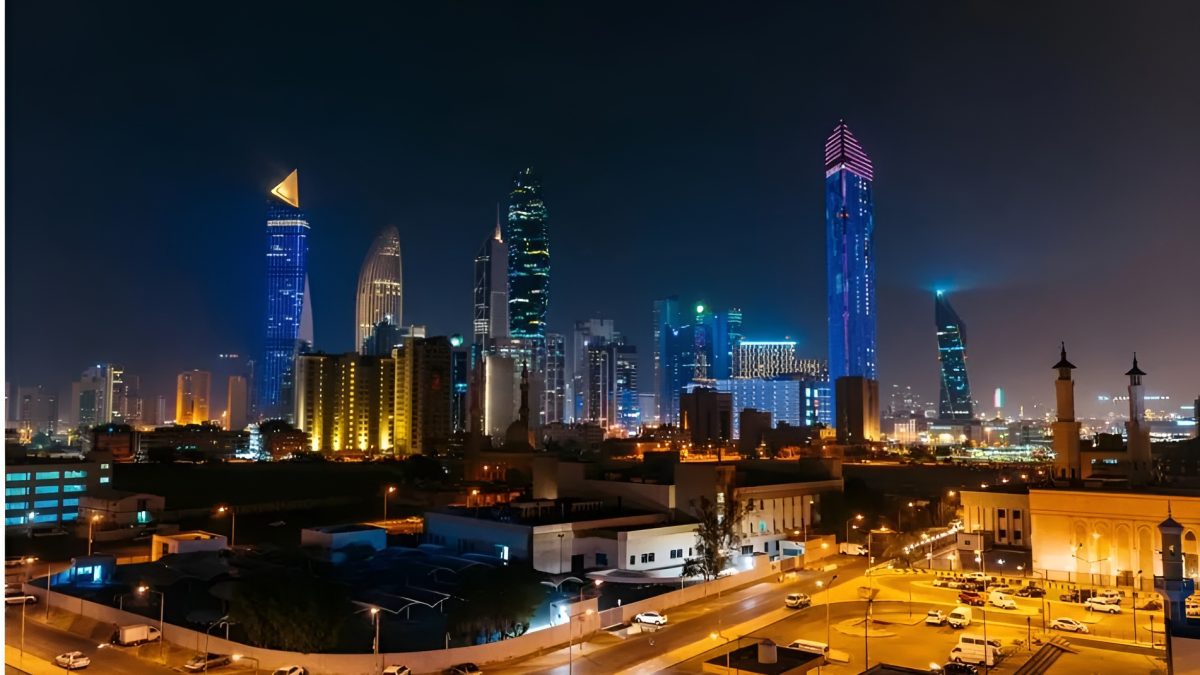Kuwait’s Green Lifestyle Movement is becoming one of the most inspiring environmental success stories of the Gulf region. In 2025, the country has made significant progress in promoting eco-friendly living, reducing waste, and increasing green awareness among citizens. The movement, which started slowly a few years ago, is now gaining serious momentum with major government policies, grassroots participation, and private sector involvement.
This year, Kuwait’s green movement is no longer limited to isolated initiatives or small campaigns. It is being recognized as a national shift in mindset. From green buildings to eco-friendly transport, the changes are becoming part of everyday life.
A Strong Push from Government and Policy Support

The most important factor behind Kuwait’s Green Lifestyle Movement in 2025 is the support from the Kuwaiti government. In early January, the Ministry of Environment introduced a long-term plan called “Vision Eco 2035.” This plan focuses on sustainability, clean energy, reduced plastic use, and environmental education in schools.
Plastic bag bans have been officially enforced in supermarkets and public outlets. Shoppers are now encouraged to use cloth or biodegradable bags. New building regulations require energy-efficient designs in both public and private construction projects.
In addition, solar panel subsidies for homes and small businesses have been announced, making renewable energy more affordable and appealing. The use of solar power has increased by nearly 30% compared to 2024.
Public Awareness and Youth Involvement
One of the most positive developments in Kuwait’s Green Lifestyle Movement is the rise of environmental awareness among youth. In 2025, social media campaigns by influencers and activists are encouraging young Kuwaitis to adopt sustainable habits such as recycling, zero-waste shopping, and responsible consumption.
School programs now include weekly eco-activities. Students take part in clean-up drives, tree planting, and environmental science fairs. Kuwait University has also launched a “Green Leaders Program” that educates future environmental professionals.
The younger generation’s enthusiasm is creating pressure on corporations to adopt green practices. Major retail brands in Kuwait have switched to eco-packaging and are offering discounts to customers who bring reusable containers or bags.
Transportation Is Getting Greener
Transport plays a major role in climate impact, and Kuwait has taken bold steps in 2025 to make this sector eco-friendly. The Public Authority for Roads and Transportation has expanded bike lanes in Kuwait City and introduced new electric bus services.
Private car owners are being given incentives to switch to electric vehicles (EVs). The number of EV charging stations has doubled this year, and a tax reduction on electric vehicle purchases is encouraging adoption.
By mid-2025, over 12% of Kuwait’s public transportation fleet is electric. This reduces the city’s carbon footprint and makes the air cleaner and healthier.
Waste Management Sees Major Upgrades
One of the previous weak points in Kuwait’s sustainability plan was waste management. But in 2025, this area is seeing serious reform. The country has opened three new recycling plants and improved waste collection systems across all governorates.
Residents now have access to colored waste bins that separate organic, recyclable, and hazardous waste. These bins are part of a national waste segregation campaign, which has shown positive results. Recycling rates have improved from just 5% in 2023 to nearly 18% in 2025.
Kuwait also introduced a “Green Points” system where households and businesses earn digital credits for proper waste disposal. These credits can be redeemed for eco-products or discounts on utility bills.
Green Architecture on the Rise

Buildings contribute significantly to energy use. That’s why Kuwait’s Green Lifestyle Movement in 2025 is focusing on green construction practices. Many new commercial buildings now follow LEED (Leadership in Energy and Environmental Design) standards. Green rooftops, natural ventilation, and energy-saving appliances are becoming standard features.
Residential complexes are including gardens, solar lighting, and rainwater harvesting systems. These measures not only reduce environmental impact but also lower utility bills for residents.
The Ministry of Housing has even introduced a Green Housing Program that offers financial support to families building environmentally sustainable homes.
Private Sector and Corporate Involvement
Big corporations are now aligning their business models with Kuwait’s Green Lifestyle Movement. In 2025, more than 60 companies in the food, fashion, and retail industries have adopted sustainable supply chains.
Fast food chains have switched to paper straws, compostable containers, and green delivery options. Apparel brands are introducing organic clothing lines and eco-friendly fashion shows to promote awareness.
Large malls are hosting “Eco Days,” where customers can bring e-waste, attend awareness workshops, and shop from eco-startups. These activities not only educate consumers but also create a sense of responsibility and pride.
The Challenges Ahead
Despite all the positive momentum, Kuwait’s Green Lifestyle Movement still faces some challenges. Public transport needs further upgrades to meet the growing demand. Also, while urban areas are quickly adapting, rural and remote regions still require better access to green resources and education.
Another challenge is consistent monitoring. Environmental experts are calling for regular evaluation of policies and stronger data collection on carbon emissions and energy use. If not addressed, these gaps could slow down future progress.
A Promising Road to Sustainability
Looking at the progress made in 2025, Kuwait’s Green Lifestyle Movement is moving in the right direction. The country is becoming a regional leader in eco-innovation, thanks to a combined effort by government bodies, businesses, and individuals.
As more citizens become aware and involved, the dream of a fully sustainable Kuwait seems more achievable than ever. This year proves that real environmental change is possible—even in countries with hot climates, limited natural greenery, and oil-based economies.
With continued commitment, Kuwait’s green journey in 2025 could inspire other nations in the Gulf and beyond to follow a similar path.
Also Read – Experts Warn: 7 Harmful Stress-Driven Lifestyle Habits in Kuwait



